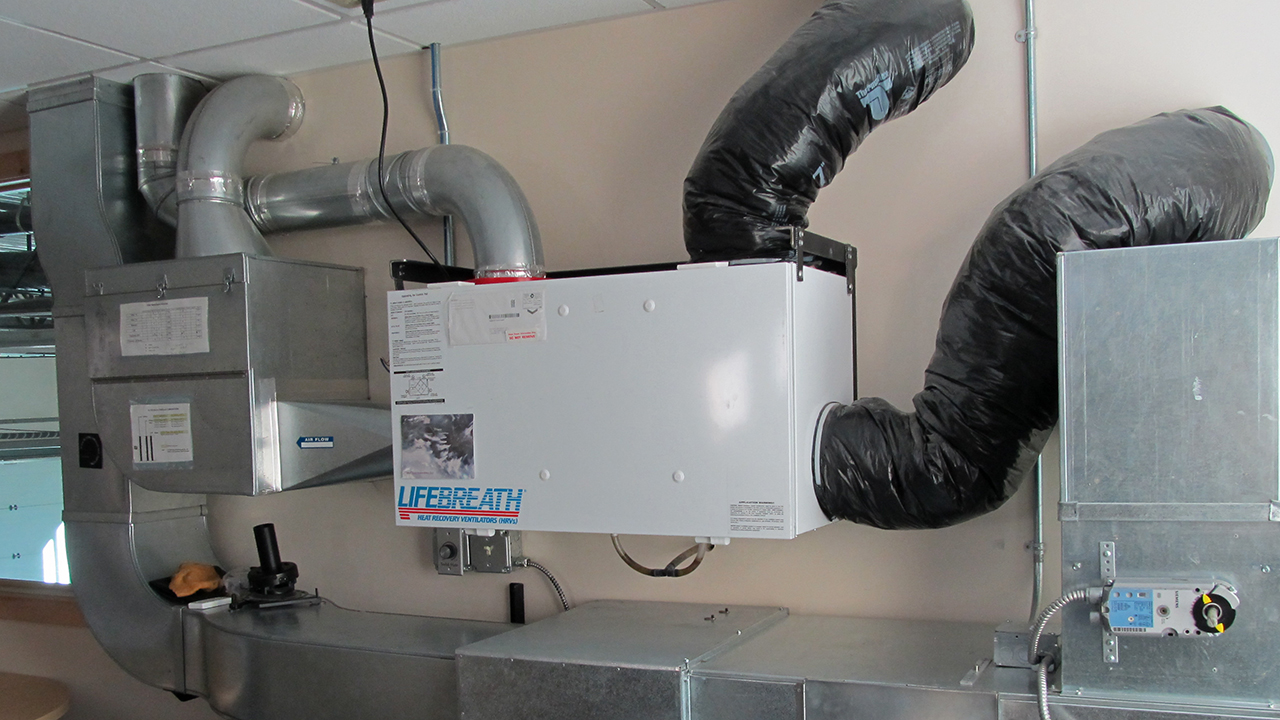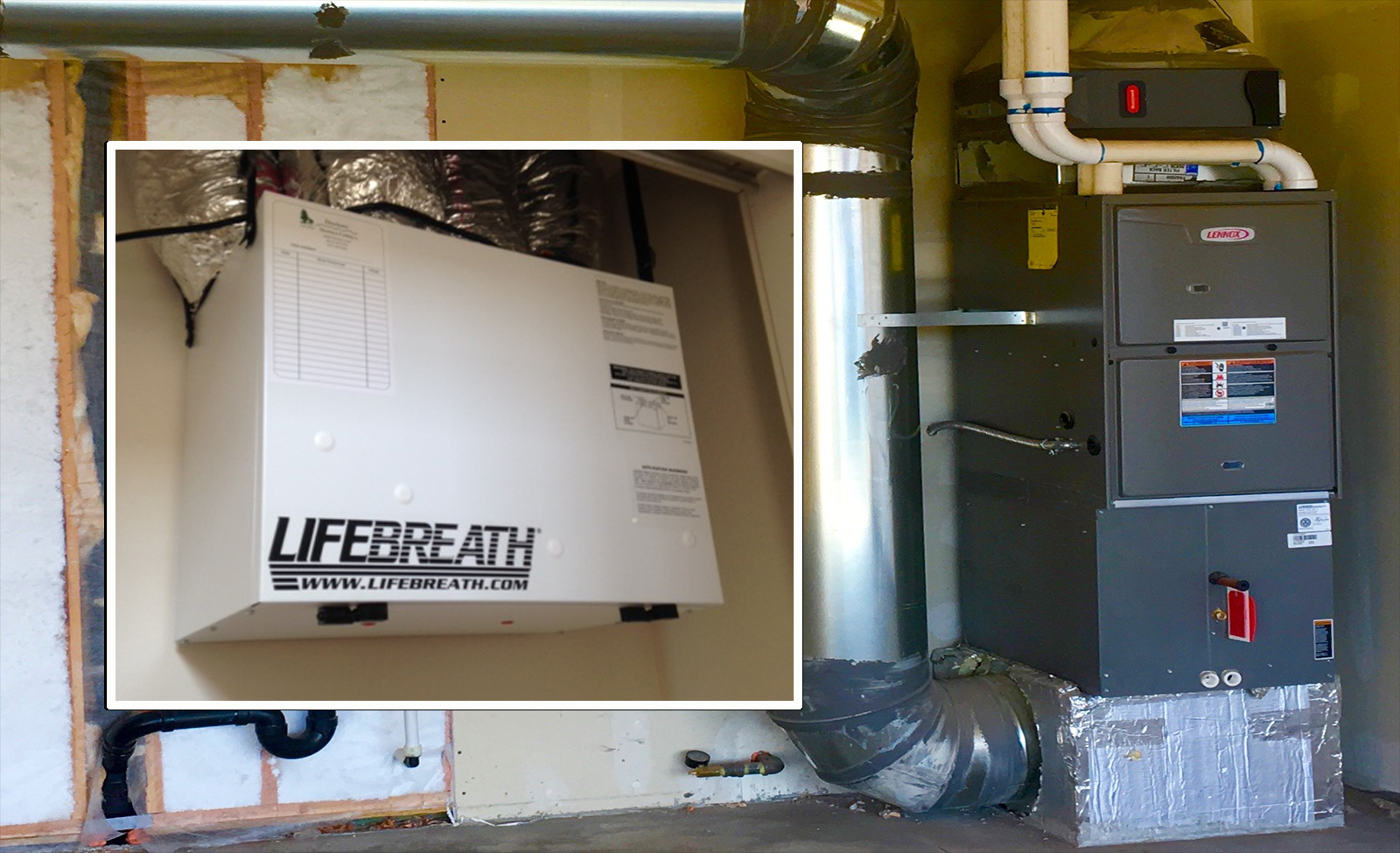Financial Insights with HRV in Cold Climates
How Heat Recovery Ventilation Boosts Indoor Air High Quality and Reduces Power Expenses
Heat Recovery Ventilation (HRV) systems play an essential duty in enhancing interior air high quality while at the same time decreasing power expenditures. By effectively exchanging stagnant interior air with fresh outside air, HRVs help keep excellent humidity and lower toxins. Furthermore, their capability to recoup heat from outward bound air minimizes the stress on heating and cooling down systems. As power prices remain to increase, recognizing the complete potential of HRV systems ends up being significantly essential for home owners and companies alike.
Recognizing Heat Recovery Ventilation Equipments

Heat recovery ventilation (HRV) systems play a vital duty in enhancing indoor air quality, especially in modern-day, energy-efficient structures. These systems are designed to transfer warm from the outward bound stagnant air to the incoming fresh air, consequently lessening power loss while maintaining optimal temperature level degrees inside. HRVs contain a heat exchanger, fans, and ductwork, assisting in the continual blood circulation of air. By expelling interior toxins and presenting fresh air, HRVs aid to balance humidity levels, prevent mold development, and reduce allergens. The performance of HRV systems hinges on their capability to recover approximately 80% of the warmth from the tired air, promoting power conservation while making certain a healthy and balanced interior environment. Their integration is crucial in attaining sustainable living techniques.
The Significance of Indoor Air Top Quality
Indoor air quality (IAQ) is a critical element influencing the wellness and health of occupants in any environment. Poor IAQ can cause different wellness problems, including respiratory system troubles, allergic reactions, and tiredness. In addition, it can worsen status quo such as asthma. Variables adding to reduced IAQ include pollutants from indoor sources like cleansing agents, mold and mildew, and poor air flow. Preserving excellent IAQ is important for advertising a risk-free and comfy living or functioning space. Efficient techniques to enhance IAQ include routine monitoring of air quality, appropriate ventilation systems, and reducing making use of damaging materials indoors. By focusing on IAQ, people can guarantee a much healthier atmosphere that promotes this link performance and overall lifestyle.
Power Efficiency Benefits of HRV Equipments
Several house owners and structure managers are increasingly identifying the power efficiency benefits of warmth recovery air flow (HRV) systems. By moving warmth from exhausted interior air to incoming fresh air, HRV systems substantially minimize the energy required for heating & cooling. This process decreases reliance on conventional cooling and heating systems, bring about reduced power costs. In addition, HRVs assist preserve a balanced indoor climate, avoiding excessive heating or cooling down needs. The capacity to recuperate as much as 90% of the warm from outgoing air likewise supports sustainability efforts by minimizing total energy consumption. HRV systems add not just to cost financial savings yet likewise to a decreased carbon impact, straightening with the growing focus on energy-efficient structure practices.
Installation and Upkeep Considerations
The efficient execution of warm healing ventilation (HRV) systems requires careful consideration of installation and maintenance factors to guarantee peak efficiency. Correct positioning of the HRV device is important, as it needs to be installed in a place that makes the most of airflow while minimizing noise disturbance. In addition, ductwork should be properly sized and shielded to avoid power loss. Regular upkeep, including filter replacement and system cleaning, is essential to safeguard ideal capability and indoor air high quality. Proprietors ought to establish a routine maintenance routine to recognize and attend to prospective issues before they escalate. Partnership with experienced specialists throughout both installation and maintenance stages can boost the longevity and effectiveness of HRV systems, inevitably leading to much better interior atmospheres and reduced original site energy expenses.
Real-World Applications and Success Stories
Checking out real-world applications of warmth recuperation ventilation (HRV) systems reveals their considerable effect on interior air top quality and power effectiveness across various settings. In household buildings, house owners have actually reported improved air top quality, resulting in less allergic reactions and respiratory problems. Schools implementing HRV systems have kept in mind enhanced student concentration and reduced absenteeism due to better ventilation. Commercial structures, such as workplaces and retail rooms, have actually experienced reduced power costs and enhanced worker productivity. For example, a company office in a warm environment attained a 30% reduction in energy expenses after mounting an HRV system. These success tales show that HRV technology not only contributes to much healthier settings however also provides substantial monetary benefits, making it a valuable financial investment for numerous markets.
Frequently Asked Inquiries
Can HRV Equipments Decrease Allergens in Indoor Air?
The performance of HRV systems in minimizing indoor irritants mostly rests on their capacity to filter and exchange air. HRV Heat Recovery Ventilation. By constantly replacing stagnant air, these systems can considerably lower irritant levels throughout interior visit here atmospheres

Exactly How Does Humidity Affect HRV System Efficiency?
Moisture considerably influences HRV system efficiency; high degrees can cause condensation, decreasing efficiency, while reduced humidity may boost air exchange. Balancing moisture is crucial for excellent operation and maintaining interior air high quality.
Are HRV Systems Noisy Throughout Operation?
HRV systems can create differing noise degrees during procedure, depending upon their layout and setup. Some units run quietly, while others might generate visible sound, especially at greater air movement setups or when improperly kept.
What Is the Typical Life Expectancy of an HRV System?

Can HRV Equipments Be Used in All Climates?
HRV systems can be utilized in various climates, yet their effectiveness might differ - HRV Heat Recovery Ventilation. In severe temperature levels, changes or supplementary systems could be essential to guarantee suitable performance and convenience while maintaining interior air high quality